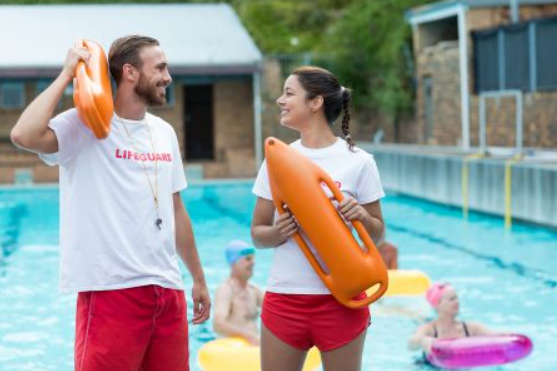Lifeguard Certification: Keeping Swimmers Safe: Are you passionate about water safety and interested in becoming a lifeguard? Lifeguard certification is not just a requirement for employment; it’s a commitment to ensuring the safety of swimmers and beachgoers. In this comprehensive guide, we’ll explore everything you need to know about lifeguard certification, with a focus on the renowned American Lifeguard Association (ALA) and its certification programmes.
Introduction:
The importance of lifeguard certification
Lifeguards play a crucial role in preventing drowning incidents and ensuring the safety of individuals in aquatic environments. Lifeguard certification provides the training and skills necessary to perform these responsibilities effectively.
Overview of the American Lifeguard Association (ALA)
The American Lifeguard Association is a leading organisation in aquatic safety and training, dedicated to promoting water safety through education and certification programmes. ALA certification is recognised and respected worldwide for its high standards and professionalism.
What to expect from lifeguard certification
Lifeguard certificate programmes cover a wide range of topics, including water rescue techniques, CPR and first aid, emergency response protocols, and lifeguarding responsibilities. Participants receive comprehensive training and practical experience to prepare them for real-life scenarios.
Who should get certified?
While lifeguard certification is ideal for individuals seeking employment as lifeguards at pools, beaches, and water parks, it’s also valuable for anyone passionate about water safety, including parents, teachers, and recreational swimmers.
Requirements for lifeguard certification
To become a certified lifeguard, candidates must meet certain requirements, including age, swimming proficiency, and physical fitness. These requirements may vary depending on the certification program and local regulations.
There are different types of lifeguard certification
There are various lifeguard certification programmes available, each with its own curriculum and accreditation. The American Lifeguard Association offers a comprehensive certification programme that covers all aspects of lifeguarding, from basic rescue techniques to advanced water safety skills.
Lifeguard Training Program
Course curriculum
Lifeguard training programmes cover a wide range of topics, including surveillance techniques, water rescue skills, CPR and first aid, and emergency response protocols. The curriculum is designed to provide lifeguards with the knowledge and skills necessary to prevent drowning incidents and respond effectively to emergencies.
Hands-on training
In addition to classroom instruction, lifeguard training involves hands-on practice in simulated rescue scenarios. This practical experience allows lifeguards to apply their knowledge and skills in real-life situations under the guidance of experienced instructors.
CPR and first aid certification
CPR and first aid skills are essential for lifeguards, as they may be called upon to respond to medical emergencies in and around the water. Lifeguard certification programmes include training in CPR and first aid, ensuring that lifeguards are prepared to act quickly and effectively in an emergency.
Benefits of Lifeguard Certification
Ensuring swimmer safety
Lifeguard certification equips individuals with the skills and knowledge necessary to prevent drowning incidents and ensure the safety of swimmers and beachgoers. Certified lifeguards play a crucial role in maintaining a safe aquatic environment.
Career opportunities
Lifeguard certification opens doors to a variety of job opportunities in the aquatics industry, including lifeguarding at pools, beaches, water parks, and summer camps. It’s also a valuable credential for individuals pursuing careers in aquatics or recreation management.
Personal development
Beyond employment prospects, lifeguard certification provides valuable personal development opportunities, including leadership skills, teamwork, and confidence. Lifeguards learn valuable life skills that can be applied in various aspects of their lives.
Why Choose the American Lifeguard Association (ALA)?
Accreditation and recognition
ALA certification is widely recognised and respected in the industry for its high standards and professionalism. Lifeguards certified by the American Lifeguard Association have the knowledge and skills necessary to perform their duties effectively.
Quality standards
ALA certification programmes adhere to strict quality standards, ensuring that lifeguards receive comprehensive training and education. The curriculum is regularly updated to reflect the latest industry standards and best practices.
Continuing education opportunities
The American Lifeguard Association offers continuing education opportunities for lifeguards to stay current with industry trends and best practices. Lifeguards can participate in workshops, seminars, and conferences to expand their knowledge and skills.

